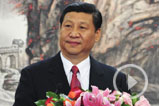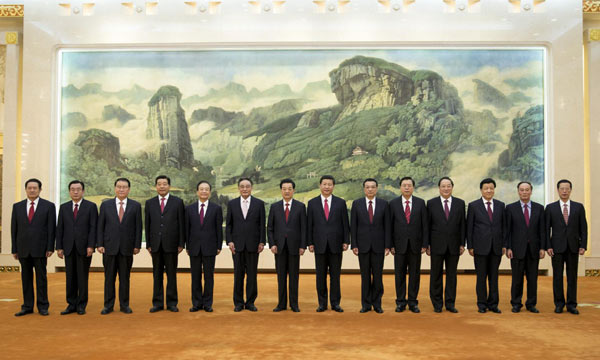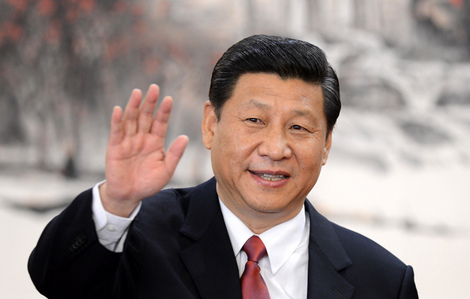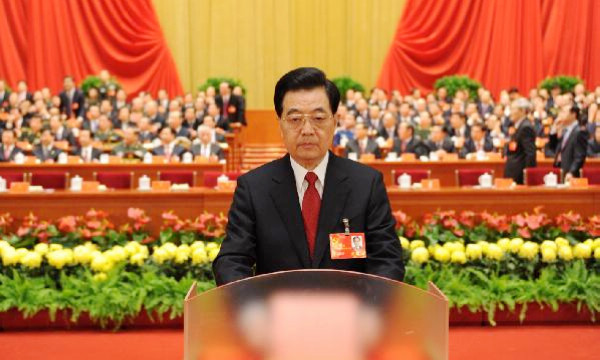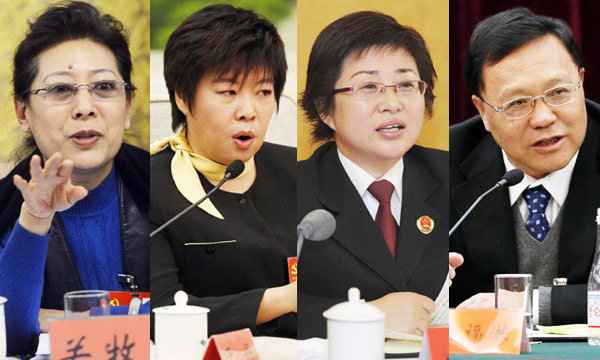Entrepreneurs' presence grows at CPC congress
(Xinhua)
Updated: 2012-11-12 21:40
BEIJING - He wears the same dark suit as many of his fellow delegates to the ongoing 18th National Congress of the Communist Party of China (CPC) and preaches Party doctrines with the same degree of fluency and sincerity.
What makes 56-year-old Liang Wengen stand out among some 2,200 delegates to the congress is his identity as a private businessman and one of the wealthiest people in China, the world's second biggest economy.
"Communists are people with ideals and in pursuit of higher standards. The public have more respect for them," said Liang, founder and board chairman of the Sany Group, one of China's machinery giants, as he met media Sunday on the sidelines of the congress, which is held once every five years.
Under immense media spotlight at the congress, Liang is among a growing group of private entrepreneurs who have joined the CPC. This year, more than 30 private entrepreneurs have been elected as delegates to the CPC National Congress, up from 17 five years ago.
"This demonstrates that the Party and the government endorses and supports the social group of private entrepreneurs," Liang told dozens of reporters in accented Mandarin.
"It is a progress to have such a ratio of entrepreneurial Party delegates," he added. "It was even impossible for us to join the Party ten years ago."
Before amending the Party Constitution at the 16th National Congress in 2002, the CPC only allowed workers, peasants, members of the military and intellectuals -- who were considered to be part of the proletariat -- to become members.
At the opening of the congress on November 8, Hu Jintao delivered a report outlining the future development of China in the next five years and beyond.
Liang said he had read carefully the lines concerning private economy. "After finding that the CPC will continue to support and encourage private enterprises, I was reassured and happy," said the bespectacled Liang who ?often smiles.
Born to a poor peasant family in Central China's Hunan province, Liang made his fortune from scratch in about a quarter of a century. His company Sany, which manufactures cranes and excavators, has benefited in recent years from China's construction boom.
The construction magnate was ranked No 6 on the 2012 Forbes China rich list with an estimated fortune of $5.9 billion. He topped both the Forbes and Hurun China rich lists in 2011.
As Liang met reporters from around the world at the congress, the businessman repeatedly pledged his allegiance to the Party.
"As a Communist, I will unswervingly put the Party's interest at first when it is in conflict with that of myself," Liang said, stressing that "he was not telling a lie."
"My property, even my life, belongs to the Party. This is the quality a Communist must have," he added.
However, Liang's path to CPC membership was circuitous. He applied several times to join the Party over a period of 18 years before finally being accepted in 2004.
Liang was first elected a delegate to the National Congress of the CPC in 2007 and was re-elected this year.
"Since becoming a Party member, I have been able to integrate the work of the Party with that of Sany. Now Sany is finding its true direction," Liang said, according to a news report posted on the company's website.
Liang's Sany Group has more than 5,400 Party members among its staff, according to the company website. In addition, seven of the 11 members of the Sany board of directors are Party members.
Since allowing private businessmen to join the Party, the CPC has expanded its organizations to many non-public enterprises in the country.
Party units have been established in about 983,000 private enterprises in China, including 47,000 foreign-funded companies, according to Wang Jingqing, deputy head of the Organization Department of the CPC Central Committee.
"Setting up Party units in non-public enterprises can better unite employees and bring attention to their needs," Wang said at a press conference on Friday last week.
On Sunday, Liang dismissed the idea of taking public office.
"China needs more entrepreneurs in its future development," said Liang. "How come I will take public office? I can't do the job. I don't even know how to talk right."
Related Stories
Entrepreneurs showing their business acumen amid economic challenges 2012-11-07 08:00
Qingdao establishes young entrepreneurs association 2012-10-31 16:42
Gong Qinggai meets with entrepreneur delegation 2012-10-24 17:24
Chinese entrepreneur parades with peers 2012-10-12 12:19
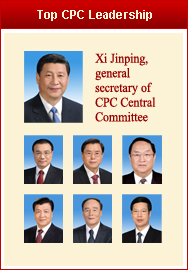
Top News
Xi emphasizes adherence to CPC Congress spirit
Top legislator urges implementation of congress spirit
Moderately prosperous China brings chances to world
Video
